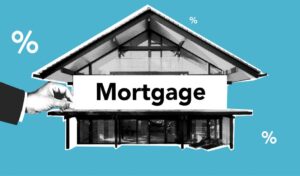Real estate investments & income taxes: Taxes are no fun for anyone, except perhaps accounts, but they are an inevitable part of life. Getting your head around taxes is one thing, but this is especially difficult when the rules constantly change, and it seems like they’re against the taxpayer.
However, it doesn’t have to be all doom and gloom. There are simple and effective ways for you to reduce the amount of tax you pay.
This article will take a comprehensive look at what this means for you, as well as diving into topics such as income taxes and real estate investments.
We have a lot to cover, so let’s get started.
Real Estate Investments & Income Taxes: Key Facts
Some key facts may help to get your head around this complex issue:
Like most countries, if you live and earn an income in Canada, you will have to pay income tax.
Canadian tax does allow for several ways to reduce the amount of taxes you owe if you keep up-to-date with the latest rules and take advantage of them.
Making the right investments could lead to savings in income tax.
Owning a property can be profitable
Now that we’ve covered the basics, let’s take a look at some surefire tax saving tips:
Borrow to Invest & Save to Buy
You may think that racking up debt is a bad idea, especially when you want to save money, and you would be right.
Creating debt for its sake or taking a loan out to buy a new sofa or car is not the type of investment that could be profitable for you.
However, taking out a loan to use for an investment can be. This is because the interest on loans that are taken out to invest are tax-deductible.
Some investments, such as stocks, are given preferential tax breaks on capital gains and dividends. However, other fixed-income investments are not given these benefits.
Owning a Business
Owning your own business allows you to deduct expenses incurred through your business as a way for you to help earn an income. These can include, but are not limited to:
Home office
Salaries paid (including to family members)
Any supplies used in business or provide a service or goods.
Use of your car.
Don’t just create a business for the sake of trying to reduce your taxes. If your business isn’t lucrative, then you will hurt your overall financial situation.
However, if you already own a business or are in the planning stages of one, it can provide some tax reduction opportunities.
Registered Retirement Savings Plans
One of the most important tax-saving tips is to put away as much as you can into this Registered Retirement Savings Plan (RRSPs).
Adding to your RRSP is tax-free, and there is no tax on the gains until the age of 71. By 71, you must begin to withdraw funds, and it will then be treated as taxable income.
Though the money you put into this account will be post-tax income, any dividends, capital gains, or interest earned in it are tax-free for life, and you don’t have to pay taxes when you make withdrawals.
Tax-Free Savings Accounts (TFSAs) are another option, as their name suggests.
Real Estate Investments
Despite the Covid-19 pandemic, Canada’s real estate market has bounced back stronger than a previous couple of years.
This has meant that housing prices in 11 of Canada’s major cities have risen by 9.36% during 2020, which, according to figures from Teranet, is the highest growth since 2016. This is in part to exceptionally low interest rates.
During 2020 property types rose as follows:
One-story single-family homes rose on average by 15.6%
Two-story single-family homes rose by 16.5%
Townhouses increased by 10.9& on average.
Apartments rose on average by 4.2%
Taxes for real estate are generally high and are as follows:
Rental income: Gross rental income is subject to a fixed 25% tax
Inheritance: Canada doesn’t have an inheritance or estate tax.
Capital Gains: Only 50% of the capital gains are liable to tax. Capital gains are worked out by deducting the costs incurred by purchasing and selling a property. Less any capital expenditures, and other costs such as additions and improvements to the property.
When investors sell a capital property for more than they originally paid, Canada Revenue Agency applies a tax on half of the capital gain amount.
Here are some ways to reduce the amount of tax paid on your capital gains:
Donations and Gifts
Giving money to family members as a gift or making regular donations to a charity is a way to reduce your capital gains tax.
If Applicable Use Your Lifetime Capital Gains Exemption
The Lifetime Capital Gains Exemption is aimed at small businesses and qualified farming properties to reduce the amount of tax if you want to sell the property.
You will need to have owned the property for a period of time and for the business to be successful and your primary source of income.
Furthermore, for businesses to qualify, they have to use at least 90% of their assets in an active business primarily running in Canada. So, consider selling your business only when it meets these requirements.
Sell Investments at the Right Time
If you want to sell profitable investments, consider postponing the sale until after January the 1st of the next year. This is because you will incur capital gains tax that year and only have to pay by April 30th of the following year.
If you have a varied income, selling when it is low may save you money. If you are losing money on some investments you have, selling them simultaneously as more profitable ones means you can apply the loss against the profits and reduce your overall capital gains tax.
Rental Properties:
If real estate investors own a rental property, they can claim a variety of tax deductions. These include:
Deducting their rental expenses against rental income, including line-of-credit interest or mortgage interest.
They can claim depreciation- capital cost allowance- of up to $20,000 in tax deductions.
Let’s look at an example: if you own a $500,000 rental property with a $400,000 mortgage at two percent, an investor may be able to claim around $8,000 of the annual interest costs.
Stay One Step Ahead if Your Real Estate Investments and Income Taxes
Income taxes aren’t a simple subject. However, above, we’ve discussed tax-saving tips and the impact of real estate investments on taxes so that you can be one step ahead and save money through tax deductions.
Canada has numerous ways for you to try and save money. Sometimes, it is a case of making wise investments or saving properly. While in other cases, it is a case of timing.
If you are interested in investing in real estate, the team at Mortgage Brokers Network can help. We have an entire team dedicated to helping new investors get into the market. Give us a call for a toll-free consultation at 1-877-383-1577 and see what our decades of experience can do for you.







